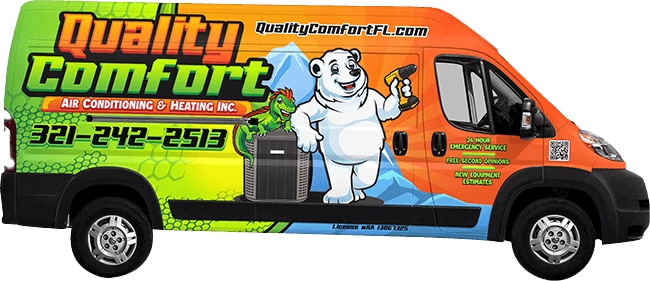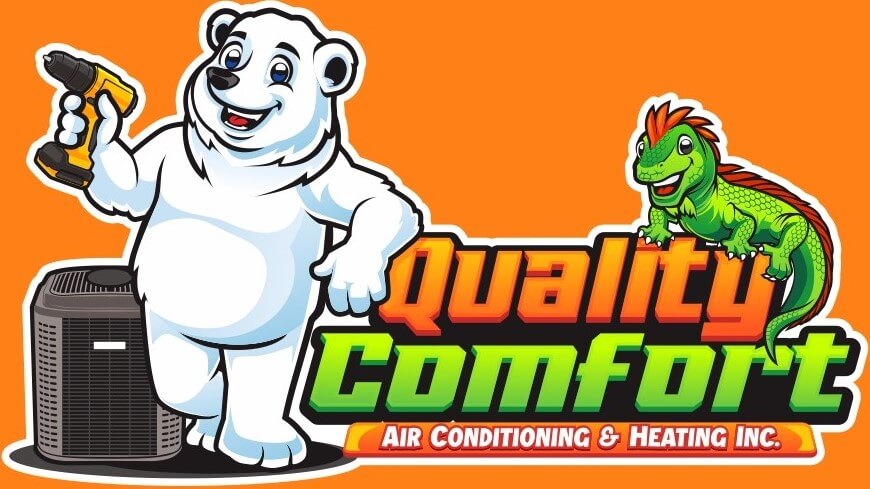


Imagine a sweltering summer day without the relief of a cool breeze from your air conditioner, or a freezing winter night without the warmth of your heating system. The comfort of your home relies on the proper functioning of your HVAC system, and at the heart of it, all is the AC blower motor. But what happens when this crucial component starts to fail? In this comprehensive guide, we’ll explore the signs of a failing blower motor, the common causes of failure, and how to maintain it to ensure optimal performance. So let’s dive in and learn how to keep your home comfortable all year round.
The AC blower motor is responsible for facilitating air circulation throughout the HVAC system, ensuring that cool or warm air reaches every corner of your home. As such, it plays a vital role in keeping your living space comfortable and your air conditioner functioning properly. By understanding the inner workings of the blower motor, you can operate and diagnose potential issues with greater ease.
But remember, if you suspect a malfunctioning or damaged blower motor, it’s best to contact a local HVAC specialist at Quality Comfort Air Conditioning And Heating Inc. to accurately assess and resolve the issue, including furnace blower motor replacement if necessary.
HVAC blower motors are classified into two categories: single-speed and variable-speed. Each type has its distinct advantages. A single-speed motor operates at only one speed, meaning it’s either on or off. On the other hand, variable-speed motors can adjust their speed according to the cooling demands of your home, making them more energy efficient.
With a variable-speed motor, you can save on energy costs and ensure that your HVAC system operates at optimal efficiency. However, it’s important to know the specific requirements of your HVAC unit before replacing the motor, as not all air conditioners can accommodate a variable-speed motor.
AC blower motor failure can be attributed to various factors, such as neglect of maintenance, accumulation of dirt, age, and electrical problems. A dirty blower motor or blower wheel, for example, can lead to unusual sounds or odors emanating from the HVAC unit. In some cases, increased energy costs may also indicate a bad blower motor, which is a faulty blower motor.
To avoid costly repairs or a complete system breakdown, it’s essential to address any signs of a failing blower motor as soon as possible, even if it’s the same blower motor that has been previously repaired.
Recognizing the signs of a failing AC blower motor can help you take prompt action and avoid further damage to your HVAC system. Some typical indications of a malfunctioning blower motor include weak or no airflow from the vents, strange noises or odors, increased energy bills, and HVAC unit overheating.
In the following sections, we’ll delve deeper into each of these signs and explain what to look for to determine if your AC blower motor needs repair or replacement.
Weak or no airflow from your vents can be indicative of a failing AC blower motor. This might result from a motor struggling to push cool air through the vents, potentially leading to a frozen indoor coil. Dirt and dust accumulation, a defective capacitor, or a motor that has exceeded its optimal performance can also contribute to weak or no airflow.
If you’re experiencing weak airflow, it’s recommended to hire an HVAC professional to assess the situation and determine the cause. They can help identify whether the issue is due to the blower motor, dirty or leaky ducts, or a clogged filter, and provide the necessary service to clean it, fix a bad capacitor, or replace the motor entirely.
Unusual noises, such as screeching, squealing, rattling, or banging, may indicate a potential issue with your AC blower motor. These sounds could be caused by a loose or broken part within the motor or by dirt and debris buildup. If you hear loud banging noises coming from your HVAC unit, it’s crucial to turn off the unit immediately and contact a professional to replace the motor.
Addressing these issues promptly can help prevent further damage to the motor or any other related components. In some cases, a simple repair, such as replacing a belt or lubricating the bearings, may be all that’s needed to resolve the issue.
An unusually high energy bill can be indicative of a failing AC blower motor. A dirty and aging blower motor can cause the electric bill to increase due to its increased effort to circulate air. If you notice a sudden spike in your energy costs, it’s essential to determine if the cause is a faulty blower motor or another issue within your HVAC system.
By replacing a failing motor with a more energy-efficient option, such as a variable-speed motor, you can save on energy costs and improve the overall efficiency of your HVAC system. Regular maintenance, such as cleaning the motor and replacing air filters, can also help prevent rust in the motor’s internal components and keep your energy bills in check.
Overheating is a sign of a malfunctioning AC blower motor. Potential causes of overheating in AC blower motors may include dirt buildup or advanced age. If you detect a burning smell coming from your HVAC unit, it’s critical to turn off the unit and contact a professional immediately.
In some cases, the source of the overheating may be an airflow obstruction. If this is the case, it’s important to identify the cause of the obstruction and address it accordingly. Regular cleaning and inspection of your blower motor can help prevent overheating and extend its lifespan.
Inconsistent temperatures throughout your home could be indicative of a malfunctioning AC blower motor. If you notice that some rooms are too hot or too cold, it’s essential to determine if the cause is a failing blower motor or another issue within your HVAC system.
A professional HVAC technician at Quality Comfort can assess your heating and cooling system and identify the cause of inconsistent temperatures, whether it’s the blower motor, thermostat, or ductwork. By addressing the issue promptly, you can ensure that your home remains comfortable and your HVAC system operates efficiently.
Frequent system cycling, or the AC unit turning on and off repeatedly, can be a sign of a failing blower motor. This could be caused by components in the blower motor that are dirty, damaged, or failing, or by other electrical and mechanical factors.
If you observe frequent system cycling, it’s important to consult an HVAC professional to diagnose and address the issue. They can determine if the cause is the blower motor or another component within your HVAC system and provide the necessary repairs or replacements to ensure optimal performance.
While it’s possible to replace an AC blower motor yourself, it’s generally recommended to hire a professional to avoid voiding warranties and ensure proper installation. HVAC technicians have the necessary qualifications and expertise to complete the job efficiently and accurately, and most offer warranties or guarantees on their work.
Undertaking a DIY blower motor replacement may result in improper repairs, potentially reducing the lifespan of your HVAC system. By engaging a professional, you can have peace of mind knowing that your HVAC blower motor has been replaced correctly, helping to maintain the efficiency and longevity of your HVAC system.
Regular maintenance is crucial for the optimal performance and longevity of your AC blower motor. By keeping the system clean and functioning properly, you can extend the life of components and minimize the risk of unexpected repairs. One simple maintenance task is to regularly change air filters, which can help prevent overheating the motor’s internal components, indicative of a dirty blower motor.
In addition to changing air filters, it’s essential to inspect and clean the blower motor regularly to ensure it remains in good working order. By addressing any potential issues early on, you can prevent costly repairs or replacements and keep your HVAC system operating efficiently.
The cost of AC blower motor replacement is contingent upon variables such as motor size, type, brand, and labor costs. Residential air conditioner blower motors typically cost between $800 and $1875. More complicated units, or those difficult to access, or variable speed ECM blower motors may cost up to $2,000+. At Quality Comfort we offer financing options for repairs above $500
When considering the cost of blower motor replacement, it’s essential to weigh the expense against the potential benefits, such as improved efficiency, reduced energy bills, and prolonged system lifespan. While the upfront cost may seem high, investing in a high-quality blower motor can save you money in the long run.
Understanding the signs of a failing AC blower motor is crucial for maintaining a comfortable and efficient home environment. By recognizing issues such as weak or no airflow, unusual noises, high energy bills, overheating, inconsistent temperatures, and frequent system cycling, you can take prompt action to address potential problems and prevent further damage to your HVAC system.
Remember, while DIY blower motor replacement is possible, it’s generally recommended to hire a professional to ensure proper installation and avoid voiding warranties. Regular maintenance, such as cleaning and inspecting your AC blower motor, can help prevent failure and extend its lifespan, saving you money in the long run. Stay vigilant, and keep your home comfortable all year round.
If you’re experiencing poor airflow, no airflow, strange noises, or strange smells coming from your air vents, it could be a sign that your AC blower motor needs to be replaced.
Skyrocketing energy bills can also indicate that the motor may need to be replaced.
Replacing an AC blower motor can typically cost between $800 and $1,875
More complicated units, or those difficult to access, or variable speed ECM blower motors may cost up to $2,000+.
If you hear humming noises coming from the unit, slow starting or stopping of the fan motor, or frequent cycling on and off, your capacitor or fan motor is likely bad.
A blower motor is an essential component of an HVAC system, turning on the fan to circulate air into your home and regulate temperature to your thermostat setting. It controls the airflow of the heating and cooling system, allowing it to operate properly.
The two main types of AC blower motors are single-speed and variable-speed, with the latter being more energy efficient.